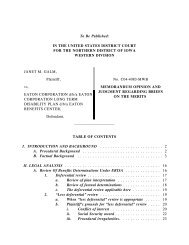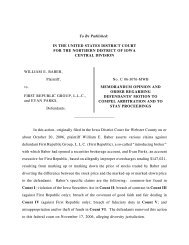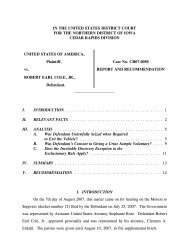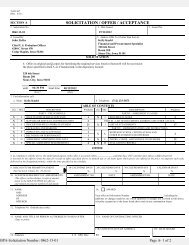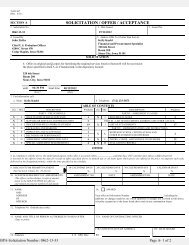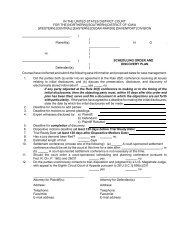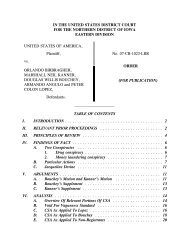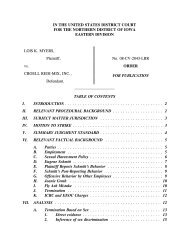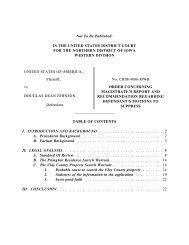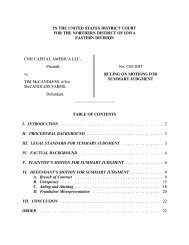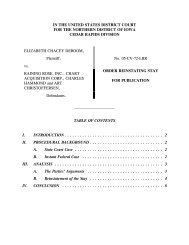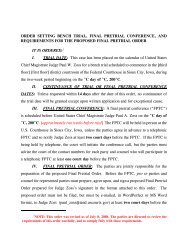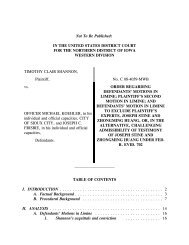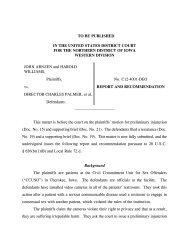Wagner v. Astrue - Northern District of Iowa
Wagner v. Astrue - Northern District of Iowa
Wagner v. Astrue - Northern District of Iowa
You also want an ePaper? Increase the reach of your titles
YUMPU automatically turns print PDFs into web optimized ePapers that Google loves.
In order to obtain an EAJA fee award, a prevailing party must submit its fee<br />
application “within thirty days <strong>of</strong> final judgment in the action.” 28 U.S.C. §<br />
2412(d)(1)(B). In social security cases such as this one, where the district court reverses<br />
and remands for further proceedings pursuant to sentence four <strong>of</strong> 42 U.S.C. § 405(g), “the<br />
[EAJA] filing period begins after the final judgment . . . is entered by the court and the<br />
appeal period has run, so that the judgment is no longer appealable.” Melkonyan v.<br />
Sullivan, 501 U.S. 89, 102 (1991) (citing 28 U.S.C. § 2412(d)(2)(G)). The period for<br />
filing an appeal, when the United States is a party to the case, is sixty days after the entry<br />
<strong>of</strong> judgment. See FED. R. APP. P. 4(a)(1)(B). Thus, once the Clerk <strong>of</strong> Court entered<br />
judgment in <strong>Wagner</strong>’s favor on March 30, 2011, <strong>Wagner</strong> had a total <strong>of</strong> ninety days to file<br />
his application for EAJA fees. Consequently, <strong>Wagner</strong>’s fee application, filed on May 1,<br />
2012, is untimely.<br />
The Eighth Circuit Court <strong>of</strong> Appeals has previously held that courts “lack<br />
jurisdiction to consider the merits <strong>of</strong> [EAJA] fee applications filed beyond this [thirty day]<br />
time limit.” Pottsmith v. Barnhart, 306 F.3d 526, 527 (8th Cir. 2002). However, the<br />
United States Supreme Court has since dispelled the notion that the EAJA’s timing<br />
requirement is “jurisdictional”:<br />
§ 2412(d)(1)(B) does not describe what classes <strong>of</strong> cases [a<br />
court] is competent to adjudicate; instead, the section relates<br />
only to postjudgment proceedings auxiliary to cases already<br />
within that court’s adjudicatory authority. Accordingly . . .<br />
the provision’s 30-day deadline for fee applications and its<br />
application-content specifications are not properly typed<br />
“jurisdictional.”<br />
See Scarborough v. Principi, 541 U.S. 401, 414 (2004) (citations and internal quotation<br />
marks omitted) (concluding that, where prevailing plaintiff timely filed an EAJA fee<br />
application but failed to allege that government’s position was not substantially justified,<br />
2



